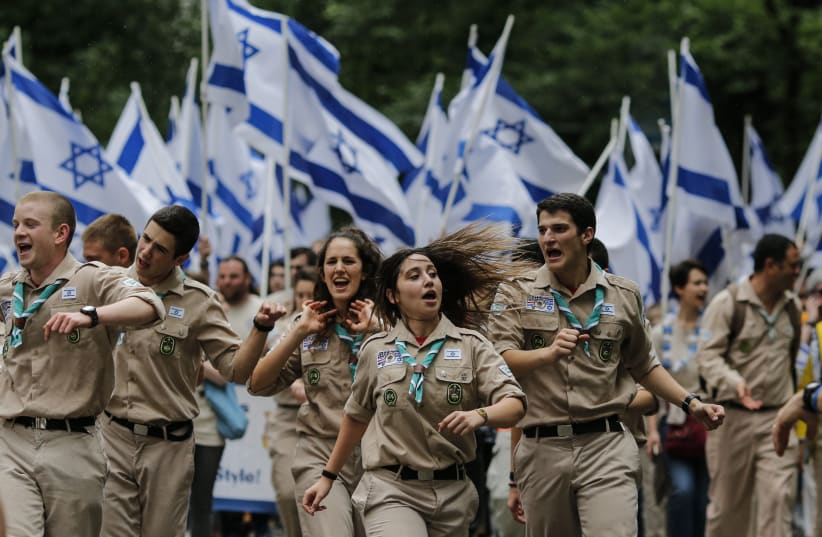Zionist youth groups are facing severe financial difficulties due to the coronavirus pandemic and the cancelation by many participants of their programs.
There are approximately 15,000 participants aged 18 to 40 from numerous organizations from around the Jewish world, but with social-distancing orders in place and various forms of lockdowns required in various parts of the country, programming for these groups has become extremely difficult.
These problems, coupled with concerns over the illness itself, have led many participants to prematurely end their programs and return to their country of origin, requesting full or partial refunds as well.
Many participants on Habonim Dror programs have canceled their participation in its Israel programs, and about one-third of the organization's annual budget has been spent in the last month alone – used to deal with the various complications to its participants caused by the epidemic.
Ofir Libstein, the chairman of Habonim Dror Olami, warned that global Zionist movements may not be able to survive the economic impact of the pandemic.
"Because their activities are focused solely on the Diaspora, the coronavirus crisis, which is unprecedented, is causing these movements to collapse. At this point in time, most of their future activities are in jeopardy,” said Libstein.
“Furthermore, the worldwide youth movements are bearing the draconian costs of isolations, chartering cargo planes, renting apartments for groups, and more. If an emergency fund is not set up, which includes immediate financial and logistical assistance as well as emotional and moral support for the staff members, the worldwide Zionist movements will not be able to survive."
Another organization, the Bnei Akiva religious-Zionist youth movement, had some 250 participants in Israel on its various gap-year programs before the pandemic took hold, but around 150 of those have now returned home, many requesting refunds.
This has adversely affected the organization’s financial situation, and the organization has now furloughed 90% of its staff, including its secretary-general, Roi Abecassis.
In addition, Bnei Akiva’s three-week summer programs are likely to be canceled – meaning the approximately 2,500 participants who were supposed to take part will not be coming to Israel either.
A large number of Bnei Akiva’s 120 emissaries around the world have also returned to Israel.
Abecassis told The Jerusalem Post that the majority of Bnei Akiva’s money comes from its programming, including summer camps and Israel programs, and these cancellations have therefore hit the organization hard.
The so-called “national institutions” also provide Bnei Akiva and others with funds, but have said these organizations should prepare for leaner times ahead.
According to Abecassis, the Keren Kayemeth LeIsrael-Jewish National Fund has said it will need to reduce an upcoming contribution by 50%.
“This is a very worrying situation,” Abecassis said, noting that the organization is also not soliciting donations at present because of the tough financial circumstances many people are now in.
